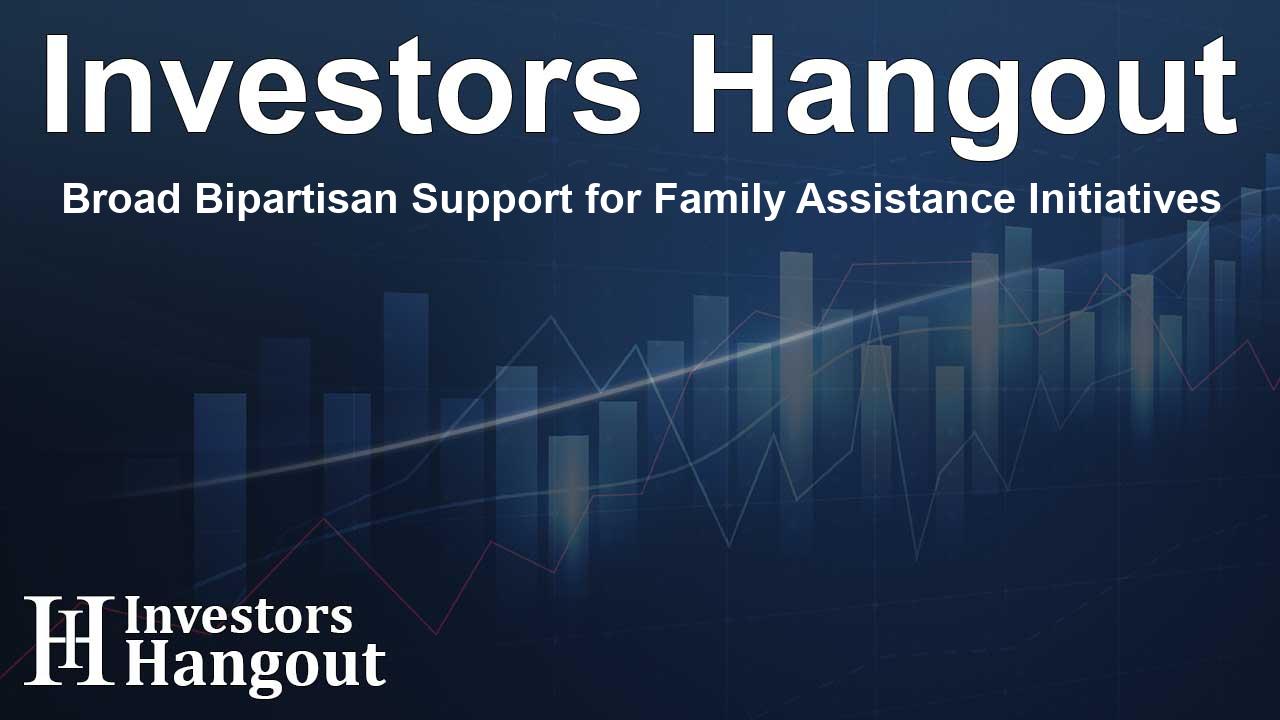Broad Bipartisan Support for Family Assistance Initiatives

Bipartisan Support for Family Assistance Initiatives
As the cost of living continues to rise, especially for families with children, recent findings reveal that Americans are rallying around the government for substantial assistance. A survey conducted by the Program for Public Consultation (PPC) highlights overwhelming bipartisan support across key issues affecting families. Respondents from six swing states nationally demonstrated a strong desire for the federal government to play a more active role in supporting families.
Key Areas of Support
Higher Child Tax Credit
Many respondents showed robust support for reinstating the higher Child Tax Credit that was available during the pandemic. Initially increased from $2,000 to $3,600 per child, the changes made during this period had significant positive impacts, effectively reducing child poverty by a third. Notably, bipartisan majorities, including over 80% of Democrats and around 60% of Republicans, back the return of this support, viewing it as a crucial step to assist families during challenging economic times.
Universal Preschool Programs
In addition to advocating for tax credits, there is strong backing for free universal preschool. The Federal government is encouraged to allocate $25 billion to states looking to establish or enhance preschool programs for all children aged 3 to 4. With around 76% to 83% of those surveyed in favor, this initiative resonates across party lines, bringing together both Democrats and Republicans in support of early childhood education.
Subsidized Childcare and Paid Leave
Childcare Subsidies
There is a growing understanding of the financial strains on parents concerning childcare expenses. A substantial majority of respondents support federal funding to subsidize childcare programs, enabling low-income parents to access services without financial burden. This proposal has gained backing from 74% to 80% of those surveyed, illustrating a collective push for an equitable childcare system where middle-income families pay no more than 7% of their income on childcare.
Paid Family and Medical Leave
An equally important focus is the establishment of a national paid family and medical leave program. This proposal, which aims to offer up to 12 weeks of paid leave for all workers, has garnered support from 68% to 75% of respondents across swing states. Both Republicans and Democrats advocate this initiative, approving a system where workers can take leave without fearing negative consequences on their financial stability.
Conclusion: A Call for Action
The survey findings echo a clear message: Americans want their government to act decisively to enhance family support systems. As the dialogue surrounding these crucial policies progresses, the emphasis remains on bridging the gap between different political ideologies for the greater good of families across the nation. By acknowledging these pressing needs and crafting tailored solutions, there is ample opportunity to uplift families and foster a stronger, more resilient society.
Frequently Asked Questions
What is the Child Tax Credit proposal?
The proposal suggests reinstating the higher Child Tax Credit, which was increased during the pandemic to $3,600 per child, with widespread bipartisan support.
Why is universal preschool important?
Universal preschool programs aim to provide access to early childhood education, enhancing developmental opportunities for children and easing financial burdens on families.
How does the childcare subsidy work?
The subsidy would ensure low-income families can access childcare for free, while middle-income families would pay a maximum of 7% of their income, making childcare more affordable.
What does the paid leave proposal entail?
The paid family and medical leave proposal allows workers to take up to 12 weeks off, providing two-thirds of their wages financed through a minimal payroll tax.
What was the feedback on these initiatives in the survey?
The survey indicated strong bipartisan support across all proposed initiatives, signaling a collective interest in strengthening the well-being of families through government action.
About Investors Hangout
Investors Hangout is a leading online stock forum for financial discussion and learning, offering a wide range of free tools and resources. It draws in traders of all levels, who exchange market knowledge, investigate trading tactics, and keep an eye on industry developments in real time. Featuring financial articles, stock message boards, quotes, charts, company profiles, and live news updates. Through cooperative learning and a wealth of informational resources, it helps users from novices creating their first portfolios to experts honing their techniques. Join Investors Hangout today: https://investorshangout.com/
Disclaimer: The content of this article is solely for general informational purposes only; it does not represent legal, financial, or investment advice. Investors Hangout does not offer financial advice; the author is not a licensed financial advisor. Consult a qualified advisor before making any financial or investment decisions based on this article. The author's interpretation of publicly available data shapes the opinions presented here; as a result, they should not be taken as advice to purchase, sell, or hold any securities mentioned or any other investments. The author does not guarantee the accuracy, completeness, or timeliness of any material, providing it "as is." Information and market conditions may change; past performance is not indicative of future outcomes. If any of the material offered here is inaccurate, please contact us for corrections.